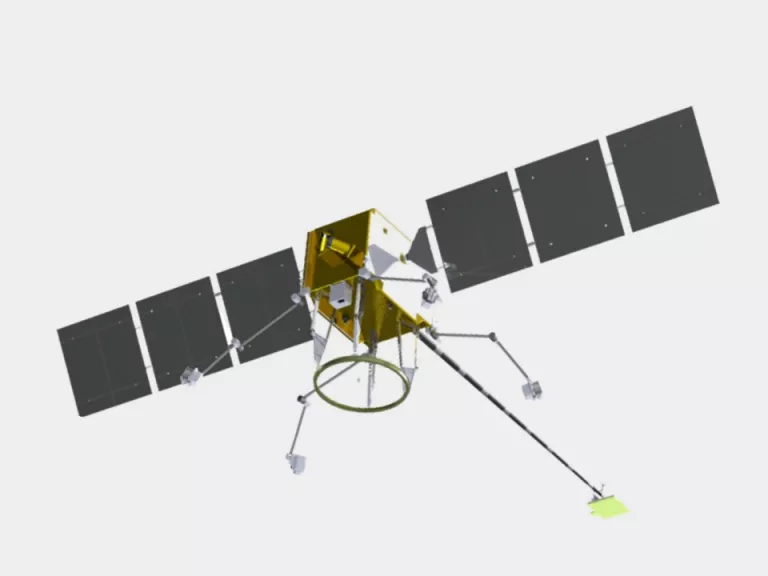
LEXI servicer
Astroscale U.S. officially cut the ribbon on its new Denver headquarters on April 16, a move intended to anchor itself in the U.S. market.
The U.S. subsidiary of Japan-based Astroscale, an in-space servicing and debris removal company, set down roots in Denver in 2019 and is furthering its investment in local operations in pursuit of partnerships and customers in the U.S.
“There’s the sheer size of the U.S. market to begin with; it really dwarfs most of the other space markets in the world, when you think of the total value,” said Ron Lopez, president and managing director of Astroscale U.S. on April 16. “That also translates into supply chain and supply base. [There’s] orders of magnitude more suppliers and partners out here located in the U.S.”
The company is particularly interested in doing business with the U.S. government, he added.
“The national security market is a large component of what makes the U.S. market space market so big to begin with,” Lopez said. “You really can’t access that national security market without having a real meaningful presence here in the U.S.”
Astroscale U.S. has about 60 employees based in the U.S., the bulk of which work from the company’s Denver headquarters. Parent company Astroscale is based in Tokyo. The company has another subsidiary in the UK.
The U.S. subsidiary is focused on the development of its Life Extension In-orbit (LEXI) servicer, a spacecraft with four robotic arms that is designed to grapple client spacecraft in geostationary orbit to help with station keeping and attitude control, inclination correction, relocating to new geostationary orbital slots and moving into graveyard orbits.
The arms for LEXI are being developed and built by a subsidiary of Astroscale U.S. based in Israel. The spacecraft will be built by an unannounced third-party satellite bus manufacturer, Lopez said.
The U.S. Space Force operates numerous geostationary communications satellites. Servicing commercial geostationary satellites is also of interest to Astroscale U.S., Lopez said.
View all news, analysis and insight related to Space Symposium 2023
